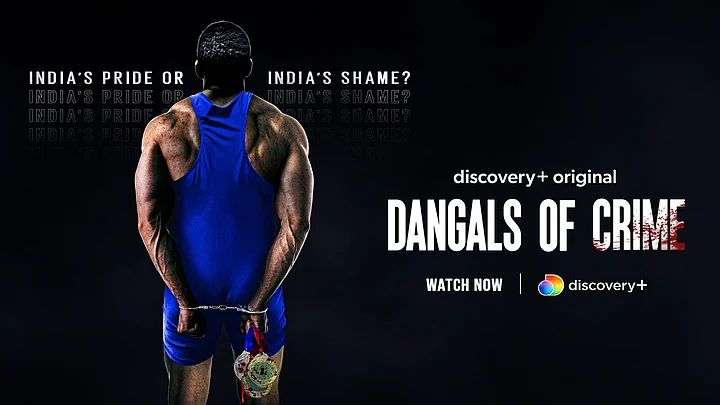When it comes to non-fiction storytelling on the small screen, there are few that manage to capture entire aspects of the subject they’re highlighting, given the infamously low attention span of our content-hopping generation. But the ones that do manage to tie all the threads together, showing us how all the small seemingly unrelated things matter, they are the ones that stick out. Case in point - ‘Dangals of Crime’ on discovery+.
What’s even more astonishing, is that they managed to cover all the angles - the aspirations tied to being a wrestler, the pyramid-like success journey that is usually the case of any individual sport, the class aspect, the rapid urbanization of villages leading to the rise of gang culture, the circumstances that lead to so many wrestlers getting entrenched in crime, and possible solutions to this problem - into two 30-min episodes. But the pacing of the narrative is so tight, that none of it feels rushed. That is pretty rare, truth be told.
The narrative starts by setting up the context as to why so many in rural north India gravitate towards wrestling. Partly owing to the idea of the supposed identity of a warrior race, and partly because it is a way out for young boys from the agricultural community to stay out of trouble, joining an akhada becomes the de facto path for many. Add to that the fame some of these wrestlers earn by winning medals in prestigious international competitions including the Olympics, which even lead the middle-class Indian dream of a “government job” even for someone who isn’t necessarily inclined towards education, and suddenly wrestling seems like the right way to go.
But the reality still is that wrestling is an individual sport. For every success story, there are hundreds that don’t earn any kind of fame or prestige. The documentary also shows how easy it is for a wrestler to fall through the gap. A freak injury, lack of proper diet, falling in with the wrong crowd - anything could trigger an exit. And yet, they persist, training from sunrise to sunset, doing their chores in the akhada, away from phones or other distractions.
But akhadas don’t exist in a vacuum, do they? These stories are all set around this rapidly expanding blob of a region we call NCR, where the value of once agricultural lands have been skyrocketing since the late 80’s.With that came the need for strongmen, to sometimes evict lands and some other times, to occupy them. Smaller strongmen circles became bigger gangs, and thus began the proverbial territorial pissing contest.
‘Dangals Of Crime’ makes all of these observations and more, and unlike many other longer format documentary films, it also offers possible solutions. If akhadas could be turned into legitimate schools with some kind of academic and soft skills education in place, many wrestlers simply wouldn’t be forced into circumstances where they had to moonlight as thugs.
‘Dangals Of Crime’ streams exclusively on discovery+, and we simply can’t recommend it enough.
(At The Quint, we question everything. Play an active role in shaping our journalism by becoming a member today.)
